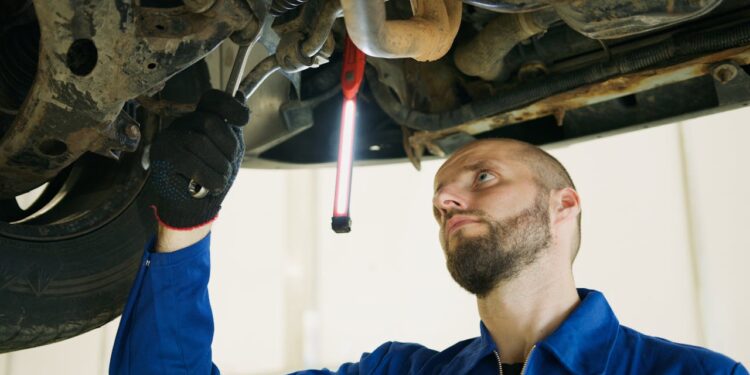Buying a used car can be a smart and budget-friendly decision — but only if you know what to look for. Whether you’re in Kampala, Entebbe, Jinja, or Mbarara, taking the right steps before finalizing your purchase can help you avoid costly repairs, legal issues, or even fraud. This guide walks you through essential checks before purchasing a used car in Uganda, ensuring your investment is safe and worthwhile.
Why Buying a Used Car in Uganda Makes Sense
The used car market in Uganda is thriving. Many buyers prefer second-hand vehicles because they are affordable, accessible, and easier to maintain compared to brand-new models. Popular brands such as Toyota, Nissan, and Subaru dominate the roads, making it simple to find spare parts and mechanics nationwide.
With rising import duties on new vehicles, many Ugandans are turning to trusted online platforms and local dealers to secure reliable pre-owned cars. However, not every deal is what it seems. This is why a thorough pre-purchase inspection is essential.
Understanding the Ugandan Used Car Market
Uganda imports thousands of used cars annually, mostly from Japan, the UK, and the UAE. These vehicles are often:
- 5 to 10 years old
- Right-hand drive
- Well-maintained or reconditioned before shipping
The most commonly purchased models include Toyota Premio, Toyota Noah, Toyota Wish, and Nissan X-Trail.
Average prices range between UGX 20 million and UGX 60 million, depending on the car’s age, mileage, and condition. Platforms like auto24.ug make it easy for buyers to browse a wide selection of cars, compare prices, and contact verified sellers.
👉 For expert automotive news, reviews, and buyer tips, visit automag.ug.
Setting a Realistic Budget
When planning to buy a used car, don’t just focus on the purchase price. A smart buyer also considers:
- Import duty and taxes
- Logbook transfer fees
- Insurance costs
- Regular maintenance and fuel consumption
- Inspection and registration fees
For example, buying a vehicle for UGX 30 million might actually cost UGX 35 million or more once all fees are included. A clear budget helps avoid financial stress after the purchase.
💡 Pro Tip: Always set aside 10–15% of your budget for post-purchase servicing and unexpected repairs.
Verifying Vehicle History
Before making any commitment, confirm the vehicle’s legal and mechanical background. This includes:
- Matching the chassis number with the logbook
- Checking for any outstanding loans or encumbrances
- Ensuring the vehicle is not reported stolen
- Reviewing the service and accident history
You can verify this information at the Uganda Revenue Authority (URA) or through certified vehicle inspection agents.
Inspecting the Exterior

The body of the car can tell you a lot about its history. Look out for:
- Rust patches around the doors, under the hood, or on the roof
- Uneven paint or overspray (a sign of repair)
- Dents, scratches, or poorly aligned panels
- Condition of the tires and suspension
⚠️ Warning: Extensive rust could indicate structural damage and may require costly repairs.
Examining the Interior
A clean, well-kept interior reflects proper maintenance. Check:
- Seat upholstery for tears or excessive wear
- Dashboard functionality (lights, radio, air conditioning)
- Odors or signs of water damage (which may indicate flooding)
- Seat belts, locks, and airbags
A neglected interior could be a red flag for how the owner maintained the vehicle overall.
Checking the Engine & Transmission
The engine is the heart of the car — so take your time here:
- Open the hood and check for oil leaks or rust.
- Listen for unusual noises such as knocking or rattling.
- Ensure the transmission shifts smoothly.
- Check the oil color (milky oil may indicate internal damage).
💡 Tip: Bring a trusted mechanic with you to assess the engine condition professionally.
Assessing the Mileage
Mileage helps estimate how much wear and tear the vehicle has experienced. In Uganda, an ideal used car should have:
- Between 80,000 and 150,000 km for its age
- Consistent mileage on the dashboard and logbook
- No signs of odometer tampering (which can sometimes occur with imported cars)
Low mileage is great — but only if it matches the car’s overall condition.
Reviewing Maintenance & Service Records
A car with a documented service history is a safer investment. Ask for:
- Receipts or service booklets
- Oil change records
- Timing belt replacement history
- Major repairs (if any)
Consistent servicing indicates that the previous owner cared for the vehicle — which means fewer surprises for you.
Test Driving the Car
Before signing any papers, take the car for a test drive. Pay close attention to:
- Braking efficiency
- Acceleration and engine response
- Gear shifting smoothness
- Suspension and steering alignment
- Unusual vibrations or noises
🚦 Tip: Test drive both on city roads and highways to detect performance issues.
Confirming Legal Documentation
Never buy a used car without validating its paperwork. Confirm:
- Original logbook
- Valid insurance cover
- Police clearance certificate
- Tax compliance documents
A fake or tampered logbook can lead to serious legal consequences. Always cross-check documents at URA or through a certified legal agent.
Understanding Market Platforms in Uganda
Trusted platforms are a safer place to find used cars than random street listings. Recommended sites include:
- auto24.ug — A marketplace with verified second-hand cars.
- automag.ug — Automotive news, guides, and tips for buyers.
- carkibanda.com — Useful for browsing, comparing, and learning more about vehicles in Uganda.
Browsing these platforms gives you market price awareness, reducing the risk of overpaying.
Exploring Electric Car Options in Uganda

For eco-conscious buyers, electric cars are slowly gaining popularity in Uganda. Platforms like EV24.africa help import electric cars at competitive rates.
Popular electric models include Nissan Leaf and Hyundai Kona Electric. While charging infrastructure is still developing, early adoption offers fuel savings and lower maintenance costs.
Negotiating the Right Price
Negotiation is expected when buying a used car. Here’s how to do it smartly:
- Research average prices for similar models
- Point out issues found during inspection
- Offer a reasonable counterprice (10–15% lower)
- Be willing to walk away if the deal feels off
💡 Pro Tip: Always negotiate in person and never transfer money before verifying ownership.
Finalizing the Deal Safely
Once the car checks out and you agree on a price:
- Complete a written sales agreement.
- Use secure payment methods (bank transfer or escrow).
- Transfer the logbook officially through URA.
- Insure the vehicle under your name.
- Schedule immediate servicing.
This ensures legal protection and smooth ownership transfer.
Frequently Asked Questions (FAQs)
1. How can I verify if a used car in Uganda is legitimate?
Check the chassis number, logbook, and tax compliance at the URA. You can also use a trusted inspection agent.
2. What’s a good mileage for a used car in Uganda?
Between 80,000–150,000 km is ideal, but the car’s condition matters more than the number alone.
3. Are electric cars practical in Uganda?
Yes. With platforms like EV24.africa, electric car options are growing. Charging stations are expanding in Kampala and major towns.
4. Should I buy from a dealer or an individual seller?
Dealers offer more security and documentation, while individual sellers may offer lower prices. Always prioritize verified documentation.
5. How do I avoid scams when buying a car?
Use trusted platforms like auto24.ug, verify ownership, and avoid deals that seem “too good to be true.”
6. Can I negotiate the price of a used car?
Yes, negotiation is common. Research prices in advance and use inspection results to your advantage.
Conclusion: Make Your Investment Count
Buying a used car in Uganda can be a smooth and rewarding process if you follow the right steps. From verifying documentation and inspecting the vehicle to negotiating wisely and finalizing the transfer legally, due diligence is your best protection.
Explore trusted platforms like auto24.ug for listings, automag.ug for industry insights, carkibanda.com for comparisons, and EV24.africa for electric car options.
A well-informed buyer always gets the better deal.




